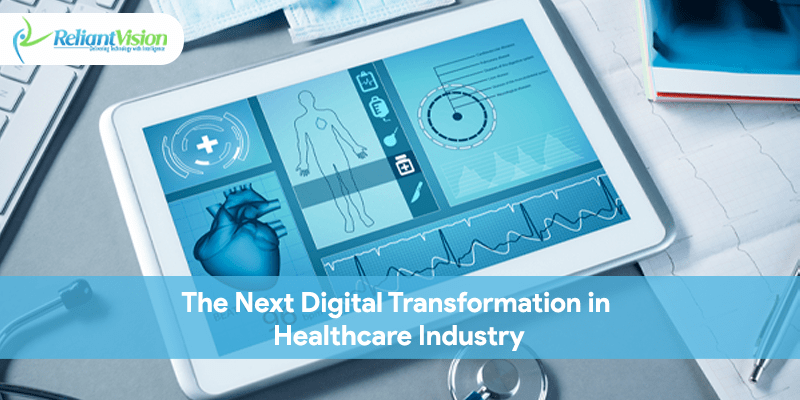The healthcare industry is always ahead in the adoption of digital and technological advancements. Digital Transformation in this case is more about the positive impact of technology in healthcare. Telemedicine, artificial intelligence (AI) enabled medical devices and block chain electronic health records are just some of the examples of transformation in the healthcare sector.
Digital Transformation is completely reshaping how patients are interacting with health professionals, how their data is being shared among providers and how decisions are being made about their treatment plans and health outcomes.
How is Digital Transformation influencing healthcare – An Overview
The main goal of Digital Transformation is about streamlining physicians’ work, optimizing systems, improving patient outcomes, reducing human errors and lowering costs.
With the challenges, being faced by the healthcare sector with new diseases there is a greater need for medical services, next-generation payment models and dealing with the complications of the insurance policies etc that necessitates the need for introducing Digital Transformation to improve healthcare services in terms of quality, access and efficiency.
Many hospitals and healthcare service facilitators around the globe are investing huge amounts of funds in the development of user-friendly and intuitive digital experiences for their patients. Let us look at the state of Digital Transformation in healthcare in 2021 and beyond.
- The rise of on-demand healthcare-
The healthcare industry has entered into the era of digital innovation with patients seeking on-demand healthcare because of their busy schedules. This means that consumers/patients want healthcare facilities at their convenience, on time and at their locations.
- Big data in healthcare
Big data is about aggregating information about a business through formats such as social media, ecommerce, online transactions to identify patterns and trends for future use. For the healthcare industry, big data is providing several important benefits such as-
- Lowering the rate of medication errors such as flagging any inconsistencies between a patient’s health and drug prescriptions, alerting health professionals and patients when there is a potential risk of medication errors.
- Facilitating preventive care
- Helping in accurate staffing
- The growth of wearable medical devices
Digital Transformation in healthcare also means healthcare service providers collecting their own health data from medical devices that include wearable technology. Healthcare companies are investing in wearable technology devices that can provide up-to-date monitoring of high-risk patients to arrive at the likelihood of a major health event. It is also helping them in personalizing healthcare experience, providing insurance incentives, gamification opportunities etc.
- Electronic Health Records or EHRs
Owing to the global necessity to monitor, control and track people’s relocations and movements due to health risks, the role of Electronic Health Records or EHRs using block chain technology is a new trend. With the decentralized network of computers that handle the blockchain and simultaneously register every transaction, the conflicting information is automatically detected resulting in 100% accurate EHRs that are also harder to hack.
Steps need to be taken by the healthcare industry to move to data driven healthcare:
The healthcare industry still needs to take the following necessary steps to fully benefit from the Digital Transformation and to tackle challenges head on in the coming decades.
- Data Security
Data security is an issue in the healthcare sector with blockchain technology still not widely accepted and understood. Blockchain technology is proven an effective tool in preventing data breaches, improving the accuracy of medical records and cutting costs.
- Identify and invest
The healthcare Industry needs to invest further in Artificial Intelligence or AI and other related advanced technologies. By investing in new technologies, workflows will become more agile by virtue of AI and advanced analytics that automate the decision-making process.
- Wider implementation of virtual reality or VR for treatment
The implementation of VR in many hospitals and healthcare centers is still a distant dream. The higher cost of hardware required is hindering the implementation of VR and yet several manufacturers have already launched or launching cheaper hardware required for VR implementation.
- Skills development
There is a requirement for significant investment to be made in a trained team of data analysts, data managers and data stewards for the needs of the healthcare industry as insufficient data analytics talent is still a major requirement for Digital Transformation to take place at full steam. Finally, it can be concluded that the state of Digital Transformation in healthcare in 2021 and beyond looks promising despite of the challenges ahead to implement it.

